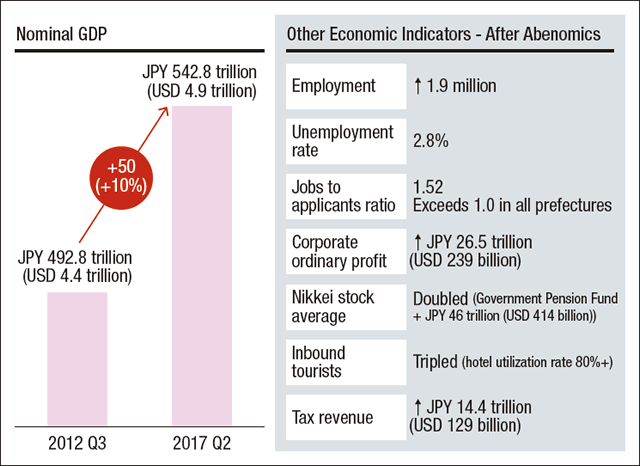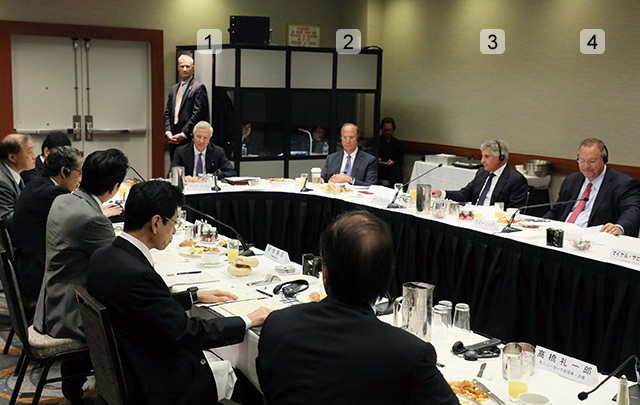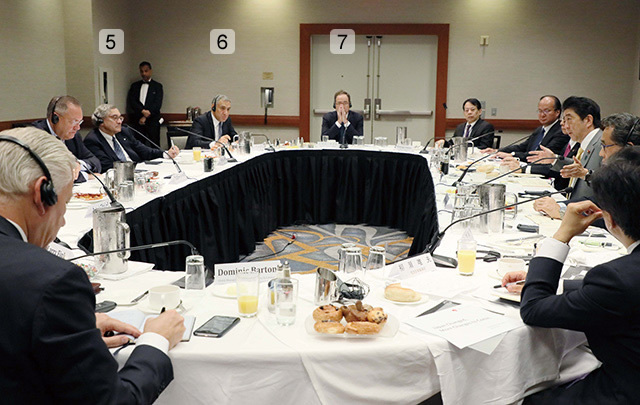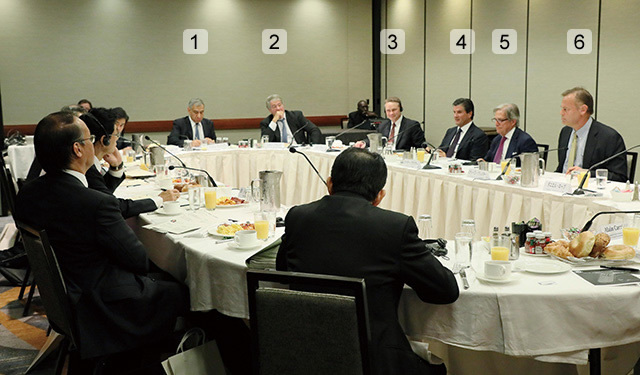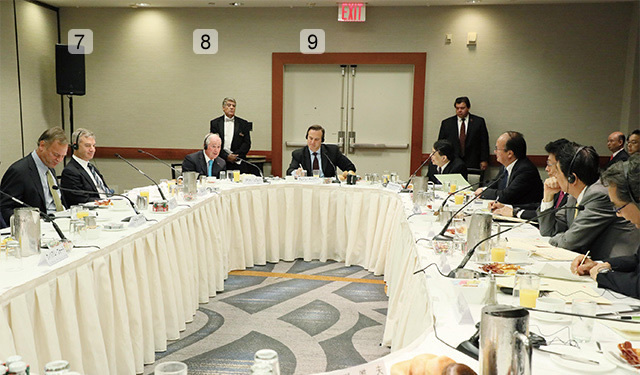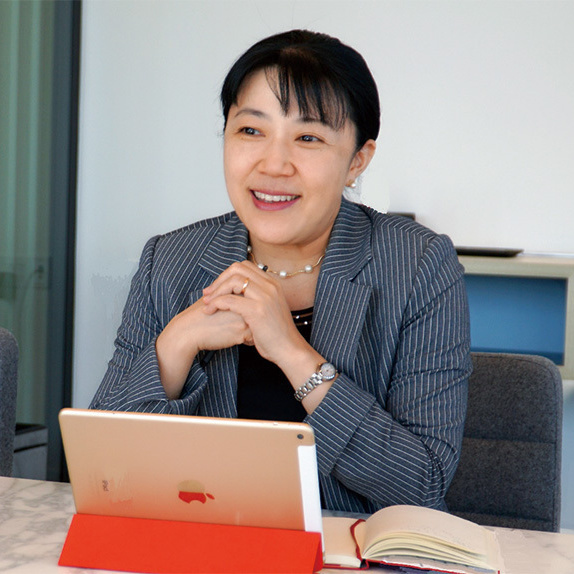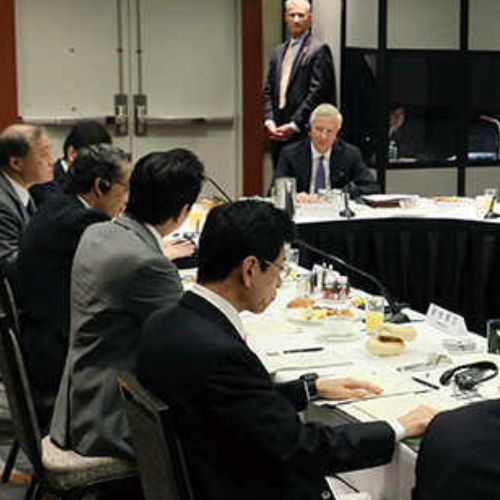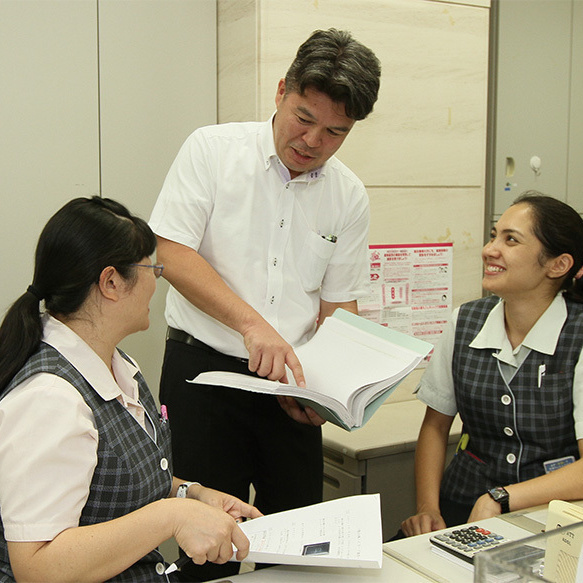Prime Minister Abe invited 15 world-renowned business leaders to breakfast during his visit to the United Nations General Assembly in New York City (Sept. 19, 2017). Abe and his guests—CEOs from leading manufacturers, asset management companies, institutional investors, and consulting and agri-business firms who were interested in and optimistic about the Japanese economy—had an active dialogue about investing in Japan.
The breakfast started off with a few words from Abe. He elucidated the remarkable changes that have happened through Abenomics such as increases in nominal GDP, employment, and corporate ordinary profit. At the same time, he pointed out that Japan also recognizes its need to pursue changes even further— increase productivity, better utilize retained earnings and fulfill the great potential of Japan’s SMEs and startups. Abe also stressed the importance of free trade and declared his unwavering commitment to making the Trans-Pacific Partnership (TPP) Agreement happen.

























